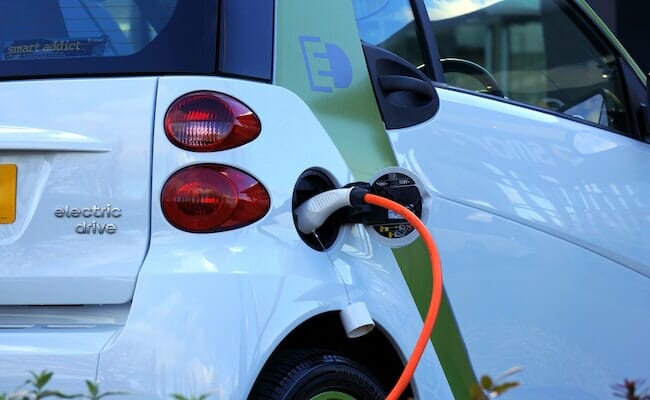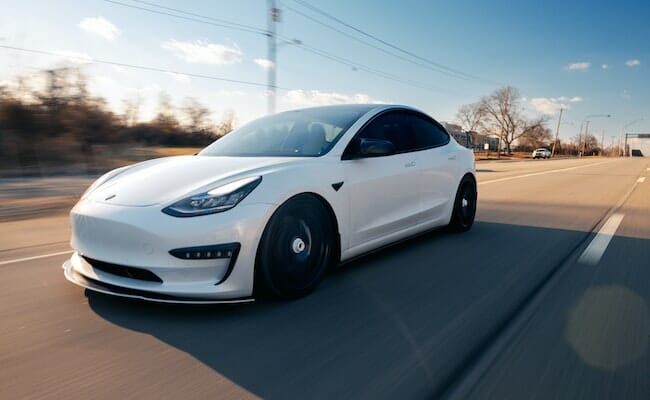New Battery Technology Will Revolutionize Electric Cars
Electric cars will soon provide what most people want from their vehicles. Thanks to the latest battery technology, future EVs will charge faster, run farther, offer more mileage, and charge a lower sticker price.
The most featured upgrades involve existing battery tech. Modern EVs run on Lithium-Ion batteries, so these developments could boost their performance and reduce their cost.
For example, Sila Nanotechnologies will replace the graphite anode that forms 15% of the weight of today’s lithium-ion batteries. The company would use a form of silicon that may raise energy density by 20% to 40%.
Moreover, the new battery technology would allow EVs to recharge quicker. Mercedes may become the first to offer Sila tech for its new electric EQG in 2025.
It would need that high-density battery due to its size and weight. Aside from Sila Technologies, OneD and Group14 are working on lithium-ion battery upgrades.
Sodium-ion batteries
Electric vehicles have been around for years, so lithium-ion is not the only type of battery nowadays. However, they are not as common as lithium-ion.
Pacific Northwest National Lab is one of the facilities that provided a breakthrough. It improved sodium-ion battery tech to become stable in extreme temperatures.
This new battery technology will also last longer and reduce its toxic by-products. Still, PNNL admitted that it still needs to improve the low energy density of sodium-ion batteries.
Solid-State Batteries
Most batteries consist of various liquids that hold a charge. Some are solid-state batteries that use tightly compressed solid materials. As a result, it could provide the following advantages for EVs:
- Greater energy density: An electric vehicle with an SSD battery could be smaller and cheaper while delivering a range similar to modern electric cars.
- Faster charging: SSD electric vehicles could fully replenish their battery in less than 30 minutes. It could turn this quality into the standard for future EVs.
- Thermal stability: Solid-state batteries could pose a lower fire risk than current lithium-ion batteries.
- Longer cycle life: Car manufacturer General Motors is developing an electric automobile with a battery that lasts a million miles!
Speaking of auto firms, other companies are exploring the possibilities of solid-state batteries. Here are some examples:
- Solid Power started manufacturing a few solid-state batteries backed by BMW and Ford. Mass production may come as early as 2024.
- QuantumScape said its new battery technology is “the most promising approach to electromobility of the future.” Its power source recharges from 10% to 80% in less than 15 minutes.
- Toyota could have limited production of SDD electric cars by 2025.
- Vinfast invested in SSD battery maker ProLogium so that the former’s EVs could use them by 2024.
Other EV battery updates
Most batteries are made with heavy metals, which poses environmental & humanitarian risks. @IBMResearch has discovered the chemistry for a new battery that is:
🔋 built without heavy metals 🕒 longer lasting 💰 less expensive
Learn more: https://t.co/pem6bX11d1 pic.twitter.com/vC9qPLz7BE
— IBM (@IBM) January 3, 2020
Lithium-ion and solid-state batteries are some of the more well-known battery technologies. Yet, brilliant minds worldwide are creating new ones:
- Structural component batteries: Researchers from the Chalmers University of Technology created a battery that serves as a structural component of EVs. As a result, it could reduce the weight of electric cars.
- Carbon nanotube electrodes: NAWA Technologies invented new battery technology that contains ten times the power of current EV power cells.
- Silicon Anode batteries: The University of Eastern Finland found a way to replace graphite with silicon to boost battery performance. Moreover, the new battery technology is eco-friendly because it consists of barley husk ash.
- Seawater batteries: IBM Research discovered a way to create EV batteries with no heavy metals. It uses materials from seawater, so it would be cheaper to build.
- Sand batteries: The University of California Riverside developed battery tech that yields pure silicon from sand. The materials allow an EV battery to have three times the performance of modern graphite-based energy cells.
Conclusion
New battery technologies could make electric vehicles more reliable and affordable. As a result, more people might use EVs and help reduce our collective carbon footprint.
We should temper our expectations when reading about these trends. These developments need several years to become practical, so we might not see them in the mainstream soon.
Nevertheless, these advancements could facilitate EV adoption worldwide. Follow the Inquirer for the latest updates on electric cars and tech in general.
Frequently asked questions
What are the new technologies in electric vehicles?
Some new developments in EV battery tech include solid-state and seawater batteries. They reduce costs and boost the performance of electric vehicles.
Will electric vehicles be the future?
We might see electric cars become more commonplace after several years. However, we would need groundbreaking innovations to reduce their cost and enhance their performance.
What is the biggest problem with electric cars?
Most electric cars cost more than fuel-powered vehicles. Moreover, it can be challenging to find a charging station, depending on your location.



